Honoring National Hispanic Heritage Month
by Kayla Gonzalez
From September 15 to October 15, SFCASA is taking part in celebrating the culture and heritage of our Hispanic community and commemorating National Hispanic Heritage Month.
San Franciscans and visitors alike can find the rich Hispanic roots of San Francisco throughout the Mission District and many other renowned areas surrounding the Bay Area. The Presidio, land once owned by both Spain and Mexico, and the startup colony of Yerba Buena contributed significantly to the heavy Latin influence throughout San Francisco. About 15% of San Francisco’s residents are of Hispanic/Latino descent.
For foster youth with Latin or African American roots, exploring heritage can be difficult. Many youth are placed in homes that don’t share the same customs or traditions as their families, taking away the opportunity to learn about or understand the importance of their origins. New and unfamiliar surroundings can be made even more uncomfortable without a shared language or culture.
According to kidsdata.org, of the 62,000 children in California’s foster care system in 2014, 31,230 were of Hispanic/Latino descent. The Hispanic population of children in foster care is more than that of the African American/Black and the White population of foster care children combined.
This incredibly disproportionate amount of Hispanic children in California foster care means that an increasing number of bilingual and diverse volunteers are needed in order to best serve our foster youth community.
A shared heritage can play a large role in connecting a foster youth with the caregivers around them. A common language or an understanding of the child’s customs allows volunteers, social workers, and foster families to better connect with and understand their needs so that they can be best represented and advocated for in the courtroom.
San Francisco CASA is committed to serving a culturally and ethnically diverse group of children in foster care. Volunteers that make a concerted effort to understand the traditions of their race and culture can ensure that each youth has an opportunity to thrive.
SFCASA needs more bilingual and male volunteers to be the voice for children in foster care. If you are an individual with a desire to learn, grow, and dedicate your time to making an impact in the life of a foster child, visit http://www.sfcasa.org/volunteer/ to learn more about our volunteer opportunities.

